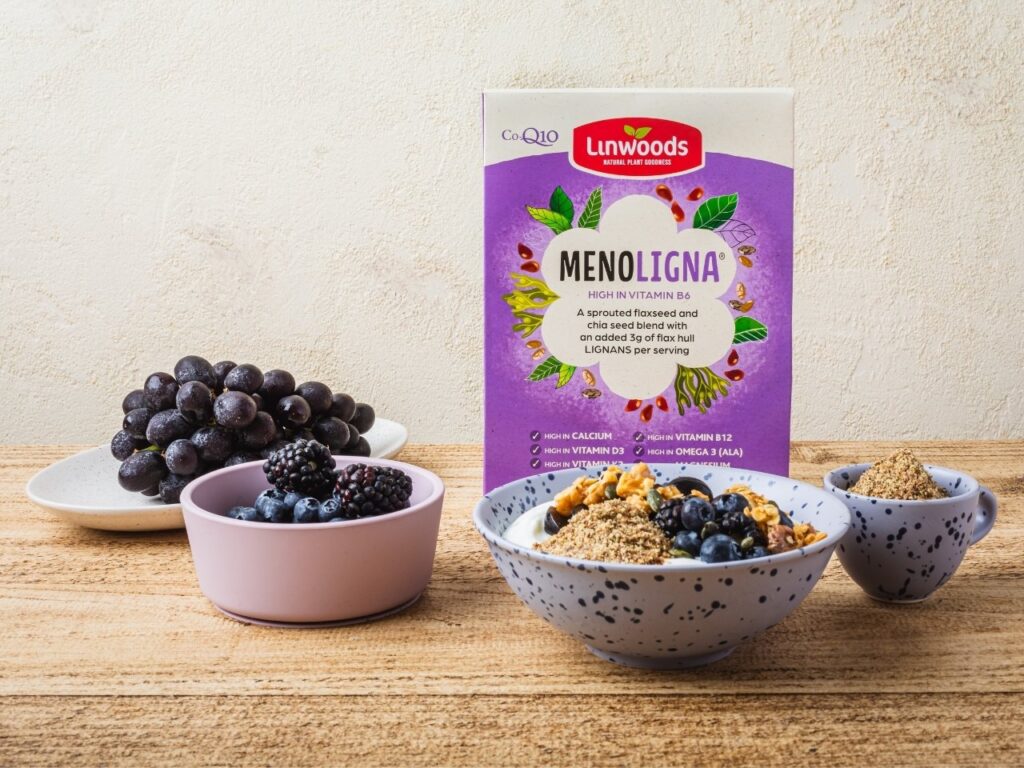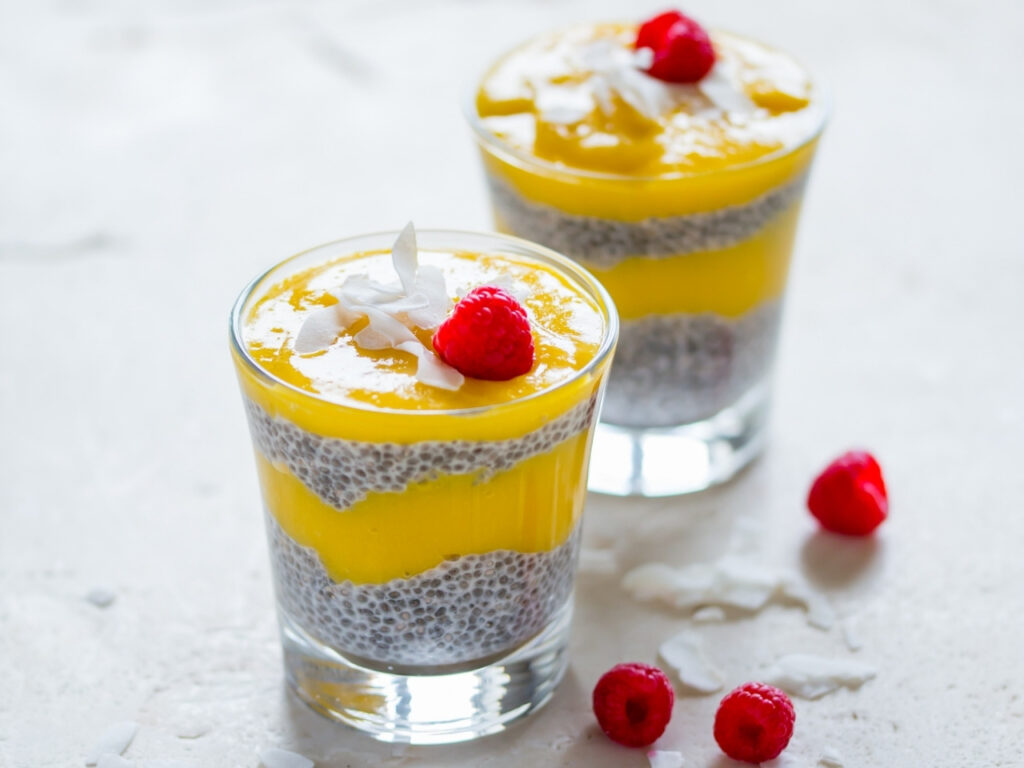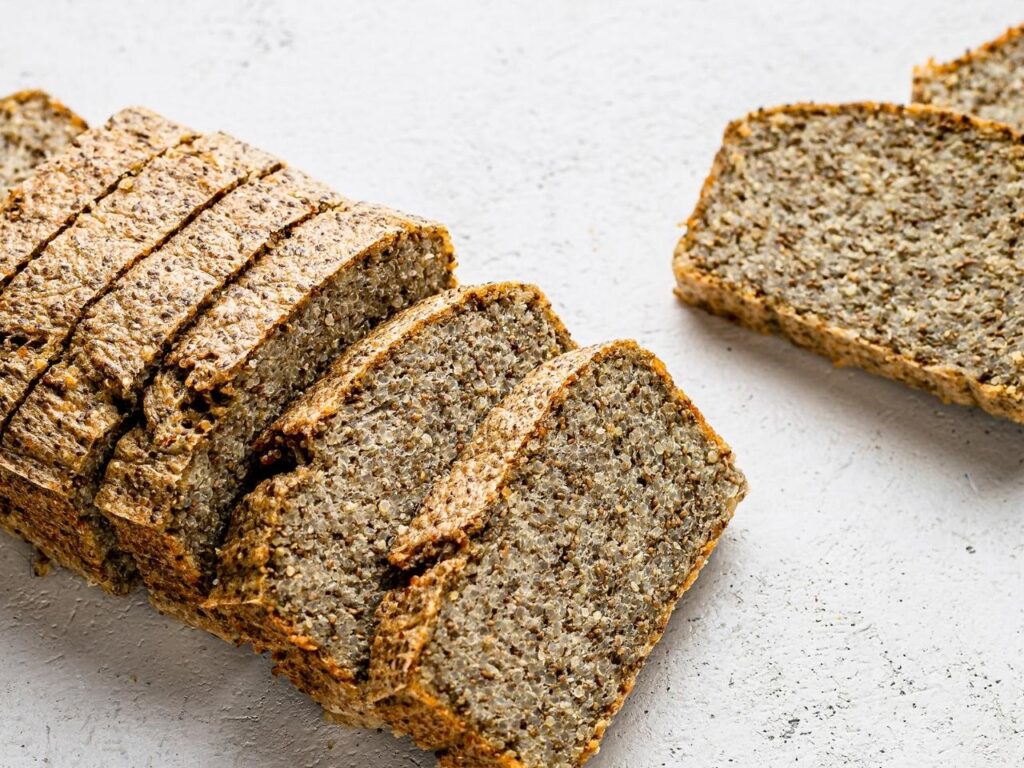Perimenopause can feel like your body’s rewriting the rules—hello stubborn belly fat, mood swings and sleepless nights. But optimising your perimenopause diet, paired with supportive lifestyle changes, can make all the difference. In this guide, you’ll discover what to eat (and what to avoid) to balance hormones, manage weight and ease the unwanted symptoms of perimenopause. Whether you’re just starting to notice changes or are deep in the thick of it, these expert-backed tips will help you feel more like yourself again—energised, balanced and in control.
What Is a Perimenopause Diet?
The term perimenopause diet isn’t referring to a ‘diet’ in the conventional sense. A perimenopause diet is a way of eating that supports hormone balance, energy levels and overall wellbeing as you move through midlife. It’s not a fad diet or a rigid set of rules.
Instead, it’s about focusing on real, whole foods that nourish your body with the nutrients it needs to thrive during this transitional phase. This approach is designed to ease unwanted symptoms, support metabolic and emotional health and build long-term resilience.
A perimenopause diet is a lifestyle shift—a foundation for feeling your best not just now, but into menopause and beyond.
Why Nutrition Is So Important During Perimenopause
The food you eat has the power to either support or undermine your health during perimenopause. Your body relies on nutrients to function properly—and that includes your hormonal, metabolic and nervous systems. During this phase of life, your nutritional needs shift, and what you eat can have a profound impact on how you feel day to day.
The Impact of Diet on Hormones and Health
Nutrition plays a foundational role in perimenopausal health. From hormone balance and blood sugar regulation to sleep, mood and weight management, every system in your body is influenced by the availability of key nutrients. And unlike medications or supplements that work in isolation, food delivers a powerful synergy of nutrients that support your body at a cellular level.
There’s growing evidence that diet and lifestyle changes can ease perimenopausal symptoms and reduce the risk of chronic disease later in life. Whether you’re dealing with low energy, increased belly fat, brain fog, hot flushes, anxiety or disrupted sleep, the right nourishment can make a meaningful difference. Eating well now helps you feel better today—and lays the foundation for a healthy transition into menopause and beyond.
It’s also an opportunity to invest in your future health. The hormonal shifts of perimenopause can increase your risk of conditions like cardiovascular disease, osteoporosis and dementia—but nutrition and lifestyle choices can help reduce those risks.
It makes sense when you think about it: your body runs on what you feed it. When you nourish it with high-quality, nutrient-dense food, you’re not just managing symptoms—you’re supporting long-term hormonal health, vitality and resilience.
Why Hormone Changes Affect So Much During Perimenopause
Oestrogen isn’t just about periods and fertility—it plays a vital role in almost every system of the body. That’s because oestrogen receptors are found throughout your brain, bones, muscles, skin, heart, gut and more. As oestrogen levels begin to fluctuate and decline during perimenopause, these systems lose a key source of support.
This hormonal shift is why perimenopause can bring such a wide range of symptoms. From hot flushes and night sweats to brain fog, anxiety, low mood, joint pain and weight gain—it can feel like your body is changing in every direction at once. But these symptoms aren’t random. They’re all connected to the loss of oestrogen and the impact it has on your body as a whole.
Understanding this helps explain why the perimenopause transition can be so challenging—and why nutrition and lifestyle strategies are essential for restoring balance and building resilience.
Top 10 Nutrients and Foods to Include in an Optimal Perimenopause Diet
The way you eat during perimenopause has a profound impact on how you feel—both now and in the years to come. The following nutrients and foods provide essential support for hormone balance, symptom relief and long-term health, including your heart, brain and bones. This isn’t a ranked list—each nutrient plays an important role in supporting your health during perimenopause. Your priorities may shift depending on your symptoms, goals and lifestyle.
1. Protein with Every Meal – A Perimenopause Diet Priority
Protein supports blood sugar balance, maintains muscle mass and helps regulate appetite—all essential during perimenopause as oestrogen levels decline and body composition starts to shift.
One of the key challenges in midlife is the natural, age-related loss of muscle known as sarcopenia. This process begins as early as your 30s and accelerates during perimenopause, impacting strength, metabolism and overall resilience. Prioritising protein—and strength training—can help slow or even reverse this process.
Aim for at least 25–30g of protein with each main meal to stimulate muscle protein synthesis and support metabolic health. Your body becomes less responsive to smaller amounts of protein as you age, so hitting this threshold matters.
Leucine, an amino acid found in protein-rich foods, plays a key role in triggering this muscle-building response. Animal proteins—like eggs, poultry, fish and meat—are the most bioavailable sources and naturally higher in leucine, making them particularly beneficial during perimenopause.
Plant proteins can still play a role but often need to be combined (e.g. rice and beans, lentils with quinoa) or complemented with a high-quality protein powder to ensure adequate amino acid intake.
Protein doesn’t just support muscle—it’s also vital for bone health, helping to maintain bone density and structure. In fact, protein makes up around 50% of bone volume and about one-third of its mass, making it an essential nutrient for preventing midlife bone loss.
Top high-quality protein sources to include in your perimenopause diet:
- Oily fish – a high-quality protein source and the richest dietary source of omega-3 fats (EPA and DHA) for hormone and brain health
- White fish (e.g. halibut, cod, haddock, pollock and coley) – great for lean protein, iodine and magnesium
- Red meat and organ meats – rich in iron, B12, choline and zinc, all essential for energy, cognition and hormone metabolism
- Organic tofu and tempeh – plant-based proteins that also provide phytoestrogens (especially helpful for hormonal balance)
- Lentils and other pulses – a reasonable source of plant protein, fibre for gut health and phytoestrogens (mainly isoflavones)
- Organic eggs – a complete protein with choline for brain and liver support.
- High-quality protein powders – such as whey protein (if tolerated) or clean pea protein, ideal for topping up protein at breakfast or post-exercise
Tip: Eggs are a versatile way to boost the protein content of any meal—add a hard-boiled egg to salads, soups or grain bowls if you’re a little short. If you’re using eggs as your main protein source in a meal, bear in mind that one large egg provides around 6g of protein—so aim for at least three. Consider adding another protein source alongside, like lentils, smoked salmon or a protein-rich spread.

2. Healthy Fats – Vital for Hormonal, Brain and Anti-Inflammatory Support in Perimenopause
Healthy fats are vital for hormone production, inflammation control and the absorption of fat-soluble vitamins like A, D, E and K. But they also play a critical role in brain health and mood regulation, both of which are often affected during perimenopause.
Two of the most important fats for women in midlife are the omega-3 fatty acids EPA and DHA, found in animal-based sources like oily fish. These fats help regulate inflammation, support cell membrane function and play a role in hormone signalling. They also contribute to the health of your nervous system and heart.
DHA is especially important for brain health—around 20% of your brain is made up of DHA. Low levels have been associated with cognitive decline, depression and mood changes, which can become more noticeable during perimenopause.
While plant-based sources like flaxseeds, chia seeds and walnuts provide ALA (alpha-linolenic acid), the body converts ALA to EPA and DHA at a very low and inefficient rate—often less than 5%. This means it’s difficult to meet your omega-3 needs from ALA alone. This is why including oily fish in your diet is the most effective way to ensure you’re getting enough EPA and DHA to support hormone health, brain function and inflammation.
Top food sources of healthy fats to include in your perimenopause diet:
- Oily fish (salmon, sardines, mackerel, anchovies, herring) – the best dietary source of omega-3 fats (EPA and DHA) to reduce inflammation, support brain and hormone function.
- Extra virgin olive oil – rich in monounsaturated fats and powerful polyphenols with anti-inflammatory effects
- Avocados – packed with monounsaturated fats and fibre, plus a source of CoQ10, a key antioxidant for energy and cellular health
- Nuts and seeds (especially flaxseeds, chia seeds and walnuts) – provide plant-based ALA, fibre and vitamin E, which supports skin and cardiovascular health
- Organic eggs and grass-fed meat – good sources of fat-soluble vitamins and essential fatty acids, especially if oily fish isn’t eaten regularly
Aim for 2–3 portions of oily fish per week to meet your omega-3 needs—or consider a high-quality fish oil or algae-based DHA supplement if needed.
3. Fibre, Prebiotics & Probiotics – Promote Gut and Hormone Health in a Perimenopause Diet
Your gut isn’t just about digestion—it’s a major hub for hormone metabolism, mood regulation, immunity and inflammation. During perimenopause, declining oestrogen affects the composition of your gut microbiome, often leading to digestive symptoms like bloating, constipation or loose stools. Supporting your gut health through diet is a powerful way to support hormone balance and improve overall wellbeing in midlife.
Fibre for Gut Motility, Hormone Balance and Blood Sugar in Perimenopause
Fibre is a foundational part of a perimenopause diet. It supports digestion, gut motility, blood sugar regulation and the elimination of excess oestrogen. Many women experience sluggish bowels during perimenopause and a fibre-rich diet can help regulate your system and ease discomfort.
There are two main types of fibre and both are important:
- Soluble fibre helps stabilise blood sugar and feeds beneficial gut bacteria.
Top sources of soluble fibre include: oats, flaxseed, chia seeds, pears, apples, carrots, sweet potato and pulses. - Insoluble fibre adds bulk to stools and supports regular bowel movements.
Top sources of insoluble fibre include: leafy greens, root vegetables, whole grains and the skins of fruits and vegetables.
Tip: Increase fibre gradually and drink plenty of water to support healthy motility and reduce symptoms like bloating or constipation.
Prebiotics & Probiotics to Support Gut and Hormone Health in Perimenopause
Another key player is your microbiome—the community of bacteria, fungi and microbes in your gut that influences nearly every aspect of your health. A specific group of gut bacteria, called the oestrobolome, helps metabolise and recycle oestrogen. When the oestrobolome is balanced, it supports healthy oestrogen levels. But when imbalanced (a state known as dysbiosis), it can worsen symptoms like weight gain, mood swings, fatigue, hormonal disruption and inflammation.
To nourish your microbiome and support microbial diversity, include both prebiotic and probiotic foods in your perimenopause diet:
Prebiotics are special fibres that feed beneficial gut bacteria.
Top sources of prebiotics include:
- Onions
- Garlic
- Leeks
- Asparagus
- Oats
- Flaxseed
- Pulses
- Jerusalem artichokes – one of the richest natural sources of inulin, a powerful prebiotic fibre
Note: Jerusalem artichokes (also known as sunchokes) are distinct from globe artichoke hearts. While both are nutritious, Jerusalem artichokes stand out for their exceptional inulin content, making them especially beneficial for gut health in perimenopause.
Probiotics introduce beneficial bacteria that help populate the gut.
Top sources of probiotics include:
- Live yoghurt
- Kefir
- Sauerkraut
- Kimchi
- Miso (choose unpasteurised and add after cooking to retain probiotics)
- Kombucha
Note: Miso can provide beneficial probiotics, but only when it’s unpasteurised and not exposed to high heat. For gut health benefits, add miso to warm dishes after cooking, or use it in salad dressings, marinades or dips.
Regularly including fermented foods in your diet can help maintain a healthy microbiome—supporting digestion, hormone balance, immune function and even mental clarity.
Tip: A high-quality probiotic supplement may be helpful, especially during times of stress, travel, illness or after antibiotics.

4. Phytoestrogens – Provide Hormonal Support in a Perimenopause Diet
Phytoestrogens are naturally occurring plant compounds that have a mild oestrogen-like effect in the body. They can help buffer the hormonal fluctuations of perimenopause by gently binding to oestrogen receptors—providing supportive effects when your own levels are dropping. They may be especially helpful for reducing hot flushes, night sweats and vaginal dryness.
There are two main types of phytoestrogens found in foods, isoflavones and lignans.
Isoflavones – Potent Phytoestrogens for Hormone Balance in Perimenopause
Isoflavones are a potent type of phytoestrogen found mainly in soy-based foods. They’ve been widely studied for their role in supporting hormone balance, particularly in relation to hot flushes and bone health. Their effect can vary depending on gut microbiome diversity and individual metabolism.
Top isoflavone-rich foods to include in an optimal perimenopause diet: organic tofu, tempeh, edamame, miso (a fermented soy paste that also supports gut health) and unsweetened soy milk (organic if possible). Fermented soy products like miso may also enhance isoflavone absorption.
Lignans – Gentle Phytoestrogens to Support Perimenopause Naturally
Lignans are plant compounds that gently mimic oestrogen and help support hormone balance during perimenopause. They are found in seeds, whole grains and some fruits and vegetables. Once digested, gut bacteria convert them into compounds that have weak oestrogenic activity. They also provide fibre and antioxidant benefits.
Top lignan-rich foods for perimenopause support: ground flaxseeds (the richest source), sesame seeds, oats, broccoli, leafy greens and berries.
Including a variety of phytoestrogen-rich foods in your perimenopause diet—such as ground flaxseeds and soy-based options—may help ease symptoms and support hormonal balance. For best results, aim to enjoy them daily, as their benefits build over time with consistent intake.
Featured: Linwoods Menoligna
If you’re looking for an easy, everyday way to boost your phytoestrogen intake, Linwoods Menoligna is a convenient and effective option. This plant-based blend of sprouted milled flaxseed and chia seeds is naturally rich in lignans. Each 30g serving provides 300mg of SDG lignans (the most studied type of lignan found in flaxseeds). It also contains:
- Vitamin B6, which contributes to the regulation of hormonal activity
- Vitamin B12, to help reduce tiredness and fatigue
- Calcium, Vitamin D and K2, which support bone health—an essential focus during perimenopause
Add 2 dessertspoons daily to smoothies, chia pudding, yoghurt, salads or soups to enjoy the benefits.

5. Magnesium – A Magical Mineral for Mood, Sleep, Anxiety and Energy in Perimenopause
Magnesium is a vital mineral involved in over 300 enzymatic reactions in the body, including those related to nervous system regulation, hormone balance, energy production and blood sugar control—all of which are affected during perimenopause.
Low magnesium is strongly associated with increased anxiety, which is one of the most common symptoms in early perimenopause. It also plays a key role in sleep quality, helping to calm the nervous system, support melatonin production and relax muscles. Many women find magnesium particularly helpful for falling and staying asleep.
Magnesium deficiency is also linked to restless legs syndrome, a frustrating and often under-recognised symptom that becomes more common during perimenopause. If you experience twitchy legs or discomfort at night, magnesium (alongside checking your iron and B12 levels) may help.
Unfortunately, magnesium is increasingly hard to get from food alone. Modern soil depletion, along with stress, alcohol, caffeine and common medications, all contribute to lower levels. While magnesium-rich foods are still valuable, many women benefit from supplementation—especially in midlife.
Top magnesium-rich foods to include in an optimal perimenopause diet:
- Halibut – one of the best animal sources of magnesium, also high in high-quality protein, selenium, B vitamins and other key nutrients; more bioavailable than most plant sources
- Pumpkin seeds – a magnesium powerhouse and a great snack for supporting energy, mood and muscle function
- Almonds – rich in magnesium and healthy fats, with added benefits for blood sugar balance and skin health
- Cashews – provide magnesium, zinc and iron, and are perfect for adding crunch and creaminess to meals or snacks
- Black beans – a plant-based source of magnesium and fibre, great for gut health and blood sugar regulation
- Spinach – a versatile leafy green that delivers magnesium, iron and antioxidants like vitamin C and beta-carotene
- Cooked Swiss chard – highly absorbable and rich in magnesium, potassium and calcium—great for heart and nerve health
6. Calcium, Vitamin D & K2 – Vital Nutrients for Bone and Nerve Health in Perimenopause
Oestrogen plays a key role in maintaining bone density—so when levels decline during perimenopause, bone breakdown can outpace bone formation. This increases your risk of osteopenia and osteoporosis, making it essential to support your bones through nutrition.
While calcium is the most well-known bone-building nutrient, it works best in synergy with vitamin D and vitamin K2:
- Vitamin D enhances calcium absorption from the gut
- Vitamin K2 helps direct calcium into bones and teeth (and away from arteries and soft tissues)
- Calcium provides the structural foundation for strong bones and supports healthy nerve signalling
But these nutrients also support your nervous system. Calcium is involved in nerve signalling and muscle contraction, while vitamin D and K2 both help regulate calcium movement in the body to ensure it’s used properly—supporting neuromuscular function and preventing issues like cramping, twitching or tingling.
Many women don’t get enough of these nutrients through diet alone—especially if they avoid dairy, have limited sun exposure or are over 40, when vitamin D production naturally declines.
Top calcium-rich foods to support bone and nerve health in perimenopause:
- Full-fat natural yoghurt – rich in calcium and beneficial probiotics to support gut and hormone health
- Organic milk – an easy-to-absorb source of calcium and protein, especially when full-fat and organic
- Hard cheeses (like parmesan) – highly concentrated in calcium and a delicious way to support bone strength
- Tinned fish with bones (e.g. sardines, salmon) – excellent source of calcium, protein and anti-inflammatory omega-3s
- Calcium-set tofu – a plant-based protein that provides absorbable calcium, especially when labelled with calcium sulfate
- Tahini – made from sesame seeds, it offers calcium and healthy fats in a creamy, versatile form
- Almonds – provide calcium, magnesium and vitamin E; a nourishing snack for bone, brain and skin health
- Dark leafy greens (like kale, collards and pak choi) – rich in calcium and other bone-supportive minerals
- Unsweetened fortified plant milks (e.g. almond or soy milk) – a good dairy-free calcium option when fortified (check labels)
Vitamin D sources to support calcium absorption and immunity:
- Oily fish (salmon, mackerel, sardines) – rich in vitamin D and omega-3s for bone and brain support
- Eggs (especially the yolk) – provide small amounts of vitamin D as well as choline and B12
- Safe sun exposure – your skin makes vitamin D in response to sunlight; aim for regular, brief exposure without burning
Vitamin K2 sources to direct calcium to your bones (not your arteries):
- Sauerkraut – a fermented food that provides small amounts of K2 while supporting gut health and digestion
- Kefir – a fermented milk drink rich in probiotics, calcium and moderate amounts of K2
- Hard cheeses (e.g. cheddar, gouda, parmesan) – naturally contain K2, plus calcium and fat-soluble vitamins
- Egg yolks – offer a small but valuable source of K2, along with healthy fats and vitamins D and A
Consider supplementation if you’re not regularly consuming these foods or have risk factors for low bone density, especially vitamin D if you live in the UK, where sunlight is limited in winter

7. Antioxidants – Help Reduce Inflammation and Oxidative Stress in Perimenopause
Antioxidants are compounds that help neutralise free radicals—unstable molecules that cause oxidative stress and damage cells. As we age, our body’s natural antioxidant defences become less efficient, so it’s important to support them through food.
In perimenopause, oxidative stress can contribute to a range of symptoms—from fatigue and brain fog to joint pain and dull, dry or itchy skin. Antioxidants are also key players in slowing signs of ageing, supporting immune function, and reducing inflammation—all essential in midlife.
Several key antioxidant nutrients are especially important during perimenopause:
- Vitamin C – Essential for immune function and a powerful antioxidant, but also crucial for collagen production, which declines rapidly in midlife. Collagen loss contributes to wrinkles, skin dryness and joint stiffness. Because the body can’t store vitamin C, it needs to be consumed daily.
Best sources of vitamin C: bell peppers, broccoli, citrus fruits, kiwi, strawberries, parsley. - Vitamin E – A fat-soluble antioxidant that supports skin health, cell membranes and helps reduce inflammation. It’s especially helpful for dry, itchy or irritated skin—a common perimenopausal symptom.
Best sources of vitamin E: sunflower seeds, almonds, hazelnuts, avocado, spinach. - Selenium – Important for the production of glutathione, one of the body’s most powerful internal antioxidants. It also plays a vital role in thyroid function, which can become more vulnerable during perimenopause.
Best sources of selenium: Brazil nuts (just 1–2 a day provides all you need), eggs, wild salmon, sardines.
Eating a wide variety of colourful, plant-based foods rich in polyphenols and phytonutrients also helps boost your antioxidant intake. These compounds support everything from brain health and hormone balance to skin glow and immune resilience.
Aim to include a rainbow of antioxidant-rich plants in your perimenopause diet: berries, citrus, leafy greens, beetroot, red cabbage, carrots, sweet potato, courgette, herbs and spices like turmeric and ginger—and include the key nutrients above for extra support.
8. Iodine – Essential for Thyroid Health, Brain Function and Hormonal Balance in Perimenopause
Iodine is an essential mineral that supports the production of thyroid hormones, which regulate metabolism, energy and brain function. As oestrogen declines in perimenopause, thyroid function can become more vulnerable—and women over 40 are at increased risk of hypothyroidism.
Low iodine can contribute to symptoms such as fatigue, cold sensitivity, weight gain, low mood and brain fog—which often overlap with perimenopausal changes and may be misattributed to hormones alone.
Adequate iodine is especially important for mental clarity, memory and mood, making it a key nutrient to support cognitive function during this life stage. It also works closely with selenium, so both should be optimised for thyroid support.
Top iodine-rich foods to include in your perimenopause diet:
- Wild-Caught White Fish – Especially cod, haddock and pollock. These are among the richest natural sources of iodine and also provide high-quality, lean protein and key minerals like selenium and magnesium to support overall hormone and thyroid health.
- Seaweed – Particularly iodine-rich varieties like nori, wakame and kombu. Even small amounts can deliver a significant iodine boost, but be mindful of portion size and frequency, as some types (like kombu) can be extremely concentrated.
- Shellfish – Such as prawns, mussels and scallops. These not only provide iodine but are also rich in zinc, selenium and vitamin B12—nutrients that support thyroid function, energy metabolism and immune health.
- Organic Milk and Dairy Products – Including natural yoghurt, kefir, and hard cheeses like cheddar and parmesan. Dairy contributes a steady source of iodine, especially when the cows are pasture-raised and fed iodine-fortified feed. These foods also support bone health thanks to their calcium content.
- Free-Range Eggs – A convenient, versatile iodine source. Most of the iodine is found in the yolk, which also provides vitamin D, B12 and choline—essential nutrients for hormone regulation and brain health.
Note: If you follow a dairy-free or plant-based diet, it’s important to ensure adequate iodine—possibly through supplementation, but always under guidance. Balance with selenium-rich foods like Brazil nuts and eggs for optimal thyroid support.

9. Anti-Inflammatory Foods – Crucial for Supporting Resilience and Wellbeing in Perimenopause
Inflammation is your body’s natural healing response to injury or infection—but when it becomes chronic, it can start working against you rather than for you. And during perimenopause, the risk of low-grade, chronic inflammation rises significantly.
This is because oestrogen plays a role in regulating your immune system and keeping inflammation in check. As oestrogen levels fluctuate and decline, your body’s ability to control inflammation may become compromised—leading to an ongoing state of subtle immune activation. This can manifest as joint pain, fatigue, brain fog, digestive issues, skin changes and an increased risk of cardiovascular disease, insulin resistance and autoimmune conditions.
Supporting your body with anti-inflammatory foods is one of the most effective and empowering ways to counter this shift. A whole-food, anti-inflammatory approach helps calm the immune system, reduce cellular stress and support hormone balance—now and into the postmenopausal years.
Top anti-inflammatory foods to include in your perimenopause diet:
- Oily fish – rich in omega-3s EPA and DHA to reduce inflammatory markers
- Extra virgin olive oil – packed with polyphenols that protect cells and support heart health
- Berries – especially blueberries and raspberries, high in anthocyanins and vitamin C
- Leafy greens – like kale, spinach and rocket, which provide magnesium and antioxidants
- Beetroot – supports nitric oxide production for cardiovascular health
- Turmeric and ginger – contain potent anti-inflammatory and antioxidant compounds
- Green tea – rich in EGCG, which helps dampen inflammation and support metabolism
The key is consistency—include these foods often and build your meals around a rainbow of whole plants, healthy fats and high-quality proteins to help your body stay resilient through hormonal change.
10. B Vitamins – Essential for Energy, Mood, Brain Function and Hormone Balance in Perimenopause
B vitamins are among the most important nutrients to support your body during perimenopause. They play a critical role in energy metabolism, brain function, hormone regulation and nervous system health—making them especially valuable as your hormones begin to fluctuate.
As stress levels rise and symptoms like anxiety, low mood, fatigue and brain fog become more common, your body’s demand for B vitamins increases. These water-soluble nutrients are quickly depleted by stress, alcohol, sugar and long-term use of the pill or HRT, so replenishing them through food (and sometimes supplements) can make a noticeable difference to how you feel.
Let’s take a closer look at the key players:
- Vitamin B6 (pyridoxine) – supports serotonin and GABA production for mood, sleep and stress resilience; helps regulate oestrogen levels and supports thyroid function
- Vitamin B12 (cobalamin) – essential for energy, focus and memory; supports adrenal hormones like cortisol and adrenaline
- Vitamin B3 (niacin) – helps detoxify excess steroid hormones; supports blood sugar balance and cellular energy
- Folate (vitamin B9) – key for methylation (detox, DNA repair, neurotransmitter production); supports cognitive clarity and emotional balance
Top B vitamin-rich foods to include in your perimenopause diet:
- Eggs – rich in B12 and choline to support cognition and hormone metabolism
- Oily fish and seafood – provide B12, B3 and anti-inflammatory omega-3s
- Poultry and red meat – excellent sources of B6, B12 and niacin
- Leafy greens – packed with folate and antioxidants to support hormone detoxification
- Legumes (lentils, chickpeas, black beans) – high in folate and B6, plus fibre for gut health
- Nuts and seeds (especially sunflower seeds) – provide B6 and stress-supportive nutrients
- Whole grains (brown rice, oats, quinoa) – a plant-based source of B vitamins, including B3 and folate
If you’re plant-based, under chronic stress or feeling fatigued, a high-quality B-complex supplement can offer extra support.

Foods to Leave Out of Your Perimenopause Diet
While nourishing your body with the right foods can help ease symptoms and support hormone balance, it’s equally important to be mindful of the foods that may be working against you. Some ingredients and habits can exacerbate common perimenopausal symptoms like bloating, mood swings, anxiety, fatigue, hot flushes and sleep disturbances—and may also increase the risk of longer-term issues like insulin resistance, inflammation and heart disease.
This isn’t about strict rules or restriction. It’s about understanding how certain foods impact your body during this hormonal shift, so you can make informed choices that help you feel your best. Think of this list as guidance to crowd out rather than cut out—because when your diet is full of nutrient-dense, whole foods, the less helpful stuff naturally starts to fall away.
1. Refined Sugar and Artificial Sweeteners
Excess sugar can wreak havoc on blood sugar levels, increasing energy crashes, irritability and anxiety. It also drives inflammation, which is harder to regulate during perimenopause due to declining oestrogen. Over time, high sugar intake is linked to insulin resistance, belly fat, fatigue and greater risk of type 2 diabetes and heart disease.
Artificial sweeteners—like aspartame, often found in diet and “zero sugar” soft drinks—can also disrupt the gut microbiome, increase cravings and negatively affect mood and cognition in some women.
What to add to your perimenopause diet instead:
Swap refined sugar for fresh fruit, a little raw honey or maple syrup, and use cinnamon or vanilla to naturally sweeten foods. Enjoy sparkling water with citrus or herbal teas instead of artificially sweetened drinks. Pair sweet foods with protein or healthy fats to blunt blood sugar spikes. A few squares of 85% dark chocolate or a creamy chia pudding make satisfying, nutrient-rich alternatives that won’t derail your hormone balance or energy levels.

2. Ultra-Processed Foods
Ultra-processed foods often contain a mix of refined sugar, poor-quality oils, artificial additives and preservatives that place stress on the body and disrupt hormone balance. They’re typically low in fibre and nutrients and can worsen symptoms like bloating, brain fog and fatigue.
Why it matters in perimenopause:
Your body is more sensitive to blood sugar highs and lows, inflammatory triggers and gut disruptors during this time. Processed foods offer little nourishment—just when your body needs nutrient density most.
Healthier swaps to support your perimenopause diet:
Focus on simple, whole ingredients. If buying packaged foods, look for short ingredient lists with recognisable items. Batch cooking or meal prepping a few staples can help reduce reliance on ultra-processed convenience foods.
3. Refined Carbohydrates
White bread, breakfast cereals, granola (usually high in sugar), pastries, biscuits and similar refined carbohydrates lack fibre and nutrients and contribute to energy crashes, cravings and blood sugar spikes. Over time, they can worsen mood swings, fatigue and weight gain, particularly around the middle.
Perimenopause-friendly swaps to try instead:
Choose slow-releasing carbohydrates like oats, buckwheat, quinoa, sweet potato and root veg. Include protein and fat with each meal to help stabilise blood sugar.

4. Alcohol
Alcohol can be a big trigger in perimenopause—disrupting sleep, mood, liver function and blood sugar, while also contributing to hot flushes, anxiety, night sweats and low energy. It can impair detoxification, worsen hormonal imbalance and raise breast cancer risk in postmenopausal women.
Better choices for optimal perimenopausal support:
Replace your evening glass of wine with kombucha, herbal infusions or sparkling water with citrus and fresh herbs. There are also great alcohol-free alternatives like botanical drinks and adaptogenic mocktails that still feel like a treat.
5. Caffeine (in excess)
Caffeine affects cortisol levels, which can worsen anxiety, hot flushes and sleep issues—particularly when consumed in the afternoon or on an empty stomach. It may also interfere with bone health and increase urinary frequency, which can become more bothersome during perimenopause.
What to add to your perimenopause diet instead:
If you enjoy coffee, stick to one cup of good quality coffee before midday and drink it with food. Try switching to green tea, matcha, rooibos, or caffeine-free herbal options if you notice caffeine sensitivity increasing.

6. Trans Fats (Hydrogenated Oils)
Trans fats are typically found in margarine, spreadable butters, baked goods and ultra-processed snacks. These fats are chemically altered and highly inflammatory, contributing to increased cardiovascular risk, insulin resistance and systemic inflammation—all of which become more relevant in midlife.
Use healthy fats in your perimenopause diet instead:
Avoid anything with “partially hydrogenated oils” in the ingredients. Use real butter, extra virgin olive oil or avocado oil for cooking. Opt for homemade versions of baked goods when possible, using whole ingredients.
The goal isn’t perfection—it’s awareness. By understanding which foods may be fuelling your symptoms and gently crowding them out with more nourishing options, you’re creating a foundation that supports both your hormones and your long-term health. Small shifts can make a big difference, especially when they’re consistent. And remember, it’s not about restriction—it’s about nourishing your body in a way that helps you feel strong, balanced and resilient through every phase of midlife.
Top 5 Supplements to Support an Optimal Perimenopause Diet
1. Menopause Multivitamin – Foundational Support for Perimenopause
A high-quality multivitamin designed for menopause can help fill the nutritional gaps that naturally occur—even in a balanced diet. These targeted formulations provide broad-spectrum support for hormone balance, energy, mood, cognitive function and bone health, all of which can feel under pressure during perimenopause. Look for one that includes bioavailable forms of B vitamins, magnesium, vitamin D, selenium, zinc, iodine and vitamin K2.
2. Magnesium (Magnesium Glycinate)
Magnesium is one of the most common nutrient deficiencies—and one of the most helpful supplements during perimenopause. It supports anxiety, mood, sleep, muscle tension, energy production and hormone balance. The glycinate form is particularly well tolerated and effective for calming the nervous system.
Tip: Take in the evening to support restful sleep and muscle relaxation.
3. Omega-3 (EPA & DHA)
If you’re not eating oily fish 2–3 times per week, supplementing with omega-3 is highly recommended. EPA and DHA support hormone production, reduce inflammation, improve mood and memory, and protect against cardiovascular disease—key concerns during and after perimenopause.
Choose a high-quality fish oil or algae-based DHA supplement.
4. Vitamin D3 + K2
Vitamin D is essential for bone health, immune function, hormone balance and mood—and deficiency is incredibly common in women over 40. K2 helps direct calcium into bones (rather than soft tissues). Vitamin D3 and K2 work synergistically to support skeletal and cardiovascular health.
Tip: Get your vitamin D levels tested if possible, especially if you avoid sun exposure or live in the UK.
5. Probiotics
Your gut and hormones are deeply interconnected. A good probiotic can support digestion, immunity, mood and the estrobolome—the group of microbes that help regulate oestrogen metabolism. Probiotics are especially helpful if you experience bloating, sluggish bowels, food sensitivities or have taken antibiotics.
Tip: Choose a multi-strain, clinically researched probiotic or seek guidance on the best option for your needs.
Supplements are most effective when they’re chosen to meet your unique needs—and used to complement, not replace, a nourishing diet. These five provide a strong foundation to support your hormones, mood, metabolism and long-term health throughout perimenopause. If you’re unsure where to start or want to personalise your approach further, working with a qualified practitioner can help you get the most out of your supplement routine.
5 Lifestyle Practices to Support Your Perimenopause Diet
Food lays the foundation—but lifestyle is the glue that holds everything together. During perimenopause, your body becomes more sensitive to stress, sleep disruption and environmental inputs. Supporting your nervous system, circadian rhythm and overall wellbeing can make a profound difference to how you feel day-to-day.
This isn’t about perfection or overhauling your life. It’s about making small, intentional changes that help regulate your hormones, calm your symptoms and build resilience—now and as you transition into postmenopause. These lifestyle strategies work hand in hand with your perimenopause diet to support hormone balance, reduce symptoms and help you feel your best during this transition.
1. Manage Stress to Support Cortisol and Hormone Balance
Chronic stress is one of the most overlooked hormone disruptors in perimenopause. As oestrogen and progesterone fluctuate, your stress response becomes more reactive. Your body then relies more heavily on the adrenal glands to produce backup hormones.
Prolonged stress keeps cortisol levels elevated, which can contribute to fatigue, anxiety, sleep disruption, belly fat and irregular cycles. It also impacts thyroid function and blood sugar regulation—two areas that are already more vulnerable in midlife.
Stress-Reducing Practices to Support Hormone Balance in Perimenopause:
- Build daily stress buffers—such as walking, breathing exercises, journalling or restorative yoga
- Reduce or delegate where possible—boundaries are powerful hormone support
- Create tech-free wind-down time to calm the nervous system before bed

2. Prioritise Restorative Sleep
Sleep becomes more elusive in perimenopause, thanks to fluctuating oestrogen, progesterone and cortisol. You might fall asleep easily but wake in the night (often around 3am). Or you may struggle with night sweats, racing thoughts or restlessness.
Poor sleep makes symptoms like brain fog, mood swings, cravings and weight gain worse. It also disrupts hormone regulation, gut repair and detoxification.
Sleep Habits to Improve Energy, Mood and Weight Balance in Perimenopause:
- Create a consistent sleep–wake schedule (even on weekends)
- Support melatonin with dim lighting in the evening and morning sunlight exposure
- Avoid screens 1–2 hours before bed and limit caffeine after midday
- Use magnesium glycinate in the evening to relax the nervous system
3. Move Daily to Support Metabolism, Mood and Muscle Strength
Movement is one of the most powerful tools you have to support hormone balance. It reduces insulin resistance, boosts energy and mood, supports lymphatic flow and helps prevent the muscle loss that accelerates during perimenopause.
Both resistance training and gentle, restorative movement are important. Strength training helps build lean muscle and bone density, while walking, stretching and mobility work reduce stress and support circulation.
Exercise and Movement Tips to Support Metabolism and Bone Health in Perimenopause:
- Aim for strength training at least 2–3 times a week—ideally 3–4 if your schedule and recovery allow—to support muscle, bone and metabolic health through perimenopause
- Walk daily—ideally outdoors. Walking outdoors offers extra benefits—like natural light for sleep and vitamin D, and the calming effect of time in nature. It’s one of the simplest ways to support your body and mind through perimenopause.
- Add mobility work, Pilates or yoga to support joints and flexibility

4. Minimise Exposure to Hormone-Disrupting Chemicals
Your body is already working hard to manage internal hormone shifts—exposure to external hormone disruptors can add to the load. These include phthalates, parabens, BPA and other xenoestrogens, which can interfere with oestrogen signalling and increase toxic burden.
Everyday Swaps to Reduce Toxin Exposure in Perimenopause:
- Switch to natural or organic skincare and body products
- Avoid plastic food containers and water bottles—use glass or stainless steel instead
- Use natural cleaning products and ventilate your home regularly or invest in an air filter
5. Support Your Mindset and Emotional Wellbeing
Perimenopause isn’t just a physical transition—it’s an emotional one too. It can be a time of deep reflection, recalibration and growth. Many women find themselves re-evaluating priorities, relationships and self-worth during this time.
Taking care of your emotional health supports your nervous system, hormone balance and resilience.
Mindset Shifts to Cultivate Resilience and Self-Compassion in Perimenopause:
- Practice self-compassion and release perfectionism
- Stay connected—talk to friends, join a community, seek support when needed
- Embrace this time as a chance to turn inward and listen to what your body is asking for

These lifestyle strategies work alongside your perimenopause diet to support hormone balance and long-term wellbeing. From calming your nervous system to improving sleep, moving your body and reducing toxic load—small daily habits add up. When paired with a nourishing, nutrient-dense way of eating, these shifts can help you feel more balanced, resilient and empowered throughout perimenopause.
Final Thoughts on Creating an Optimal Diet and Lifestyle for Perimenopause and Beyond
Perimenopause brings big changes—but it’s also a powerful chance to reconnect with your body and prioritise your health. With the right foods, smart supplements and supportive lifestyle habits, you can navigate this transition feeling stronger, calmer and more empowered.
There’s no one-size-fits-all approach, and you don’t have to do everything at once. Start small, stay curious, and remember—this isn’t about restriction or rules. It’s about support, nourishment and showing up for yourself in midlife and beyond.